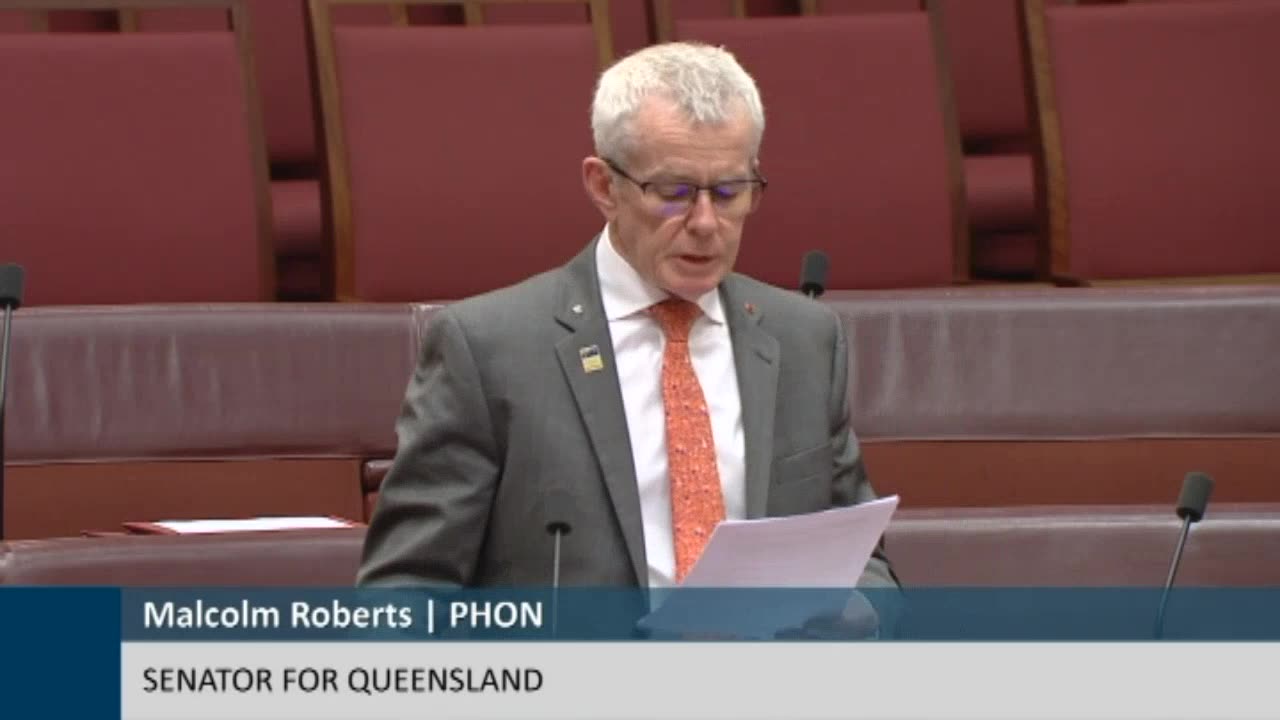Premium Only Content

A Thorough Review of the Native Title System is Critical
One Nation advocates for a thorough review of the entire native title system and proposes a sunset clause on native title claims. The current situation is out of hand and sidelines the most crucial stakeholders—the Australian people—from any meaningful consultation in these processes.
Currently, over half of Australia is subject to native title claims, yet less than three percent of Australians have had a voice in this matter. The vast majority of us are excluded from participating in the process.
While state governments, councils, and the Federal Court are involved, they rarely reflect community views because they do not seek our input. This pattern mirrors the lead-up to the Voice referendum, where extensive consultation, funded by taxpayers, occurred solely with Indigenous groups, neglecting the broader Australian population. It was this approach that contributed significantly to the Voice's failure, costing taxpayers a staggering $450 million. Native title claims are similarly determined within a closed circle, deliberately excluding the majority of Australians, including those whom the native title system purportedly aims to benefit.
During my visits to remote communities in Cape York and the Northern Territory, a consistent grievance I've heard from Aboriginal Australians across these regions is their inability to obtain land title, while unaccountable land councils operate like robber barons, establishing their own fiefdoms. This sentiment was reiterated by Aboriginal elders who sought me out during recent visits to Maryborough and Gympie.
There's a hidden agenda at play here. The preamble of the Native Title Act is filled with references to United Nations policies and declarations. This raises questions about whether the Act is serving the UN agenda of undermining private land ownership and restricting land use. Unfortunately, local Aboriginals are denied the opportunity to own land outright under native title and hinders their ability to live on, invest in, develop, farm, or leverage it for business loans.
Native title prevents Aboriginals from enjoying the same land use rights as other Australians, prolonging inequality rather than closing the gap. Land ownership on mainland Australia did not exist when the British colonists arrived, nor was there recognition of individual land rights or inheritance. The Mabo decision was based on this distinction. It was the Labor native title legislation that extended this to mainland Australia — incorrectly. This framework introduces race-based rights, perpetuating racial discrimination in Australia, which contradicts the principles of equality.
The lack of action by Labor, Liberals and Nationals to review and rectify these issues underscores a failure of democratic governance, which should prioritise serving and representing the people, not controlling them.
-
 21:24
21:24
marcushouse
8 hours ago $0.02 earnedStarship Flight 10: Go or No? 🚀
1926 -
 LIVE
LIVE
MrR4ger
13 hours agoSUNDAY FUNDAY w/ R4GER - VARIETY / DIABLO 4/ FOR HONOR / ETC?
89 watching -
 5:40
5:40
WhaddoYouMeme
3 days ago $0.13 earnedThey’re Calling This the End of Masculinity
5.95K5 -
 15:24
15:24
Tactical Advisor
16 hours agoBest 2011 of 2025 | Bul Armory Ultralight Pro
4.59K -
 27:31
27:31
True Crime | Unsolved Cases | Mysterious Stories
2 days ago $0.03 earnedThe Hong Kong Schoolgirl Mystery – 5 Mysterious Unsolved Cases (Part 8)
5.38K1 -
 7:19
7:19
China Uncensored
22 hours agoChina is DONE in the South China Sea
6.67K11 -
 LIVE
LIVE
Joe Donuts Live
3 hours ago🟢 Loot Rats Unleashed: Arena Breakout Chaos! | Joe + Tony + Vlad
369 watching -
 30:37
30:37
Degenerate Plays
15 hours agoThis College Is Out Of Control - GTA Online : Part 9
4.84K -
 16:28
16:28
Mrgunsngear
2 days ago $0.49 earnedBeretta 92XI SAO Sabbia Review - A Few Surprises
3.46K5 -
 1:48
1:48
Memology 101
1 day ago $0.02 earnedThis aged like milk for Tish James...
1.16K6